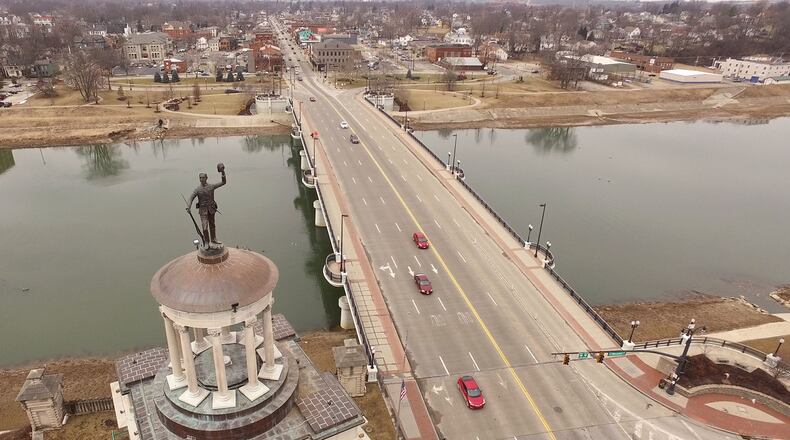The high court handed down its decision Tuesday, denying the writ of mandamus. The court said while Hamilton owes the township the money, this particular form of legal action is not available because the township hasn’t proven how much the city owes.
“It is plain that … a city is required to pay a township for tax revenue lost as a result of that city’s annexation and exclusion of township territory,” all but one justice wrote as a group.
The decision added that “St. Clair has not shown with certainty the amount of lost tax revenue St. Clair Township is owed.”
The lawsuit involves land Hamilton has annexed over the years from St. Clair, Fairfield, Hanover and Ross townships. In those annexations, the city did not get county commissioner approval for boundary adjustments, meaning residents in those townships should have voted for city council and township trustees, and the townships should have retained their property taxes.
RELATED: Hamilton annexation case: Ohio Supreme Court orders settlement
However, the auditor’s office adjusted the boundaries and thus the taxes. The Board of Elections disallowed multiple jurisdiction voting as well because both believed the annexations were finalized.
When the city was told about a probe into the matter, it received permission from commissioners in October 2016 to create a “paper township,” which adjusted the city’s boundaries to include the annexed properties.
St. Clair legal advisor Gary Sheets said that action triggered the law at issue.
Hamilton claimed the land in question was annexed prior to a 2002 law that provides compensation to townships. The city also told the court in a motion to dismiss the township hasn’t presented any claims for which relief can be granted.
The high court said the township can try another court venue.
“Because we conclude that St. Clair has not shown that it has a clear legal right to the requested relief, we deny the writ. We caution, however, that our decision today is not an adjudication on the merit,” the decision reads. “… Should St. Clair attempt to institute an action in another forum to obtain its requested relief, this decision would not be a bar to such an action.”
Sheets told the Journal-News the case is far from over.
“I consider this a win,” Sheets said. “Now we argue about the amount of money St. Clair Twp. is due from Hamilton.”
The six justices — Justice Sharon Kennedy, who hails from Butler County, did not participate — acknowledge the township has a tough task trying to decipher the amount owed.
“According to the deputy county auditor, it would take the ‘largest forensic title exam ever’ to precisely locate the excluded territory,” which is necessary to make the calculation.
Sheets had asked the court to authorize what is known as a special commissioner to help determine the amount, but the court said no. He said the next phase of this “battle” is either to convince the city to settle — he has already contacted Hamilton’s lawyer — or he will likely take it to the Butler County Common Pleas Court.
“There is a way (to figure the amount) either by agreement or we’ll have to fight it out in an interesting battle,” Sheets said.
MORE: Hamilton claims ‘financial distress’ in court documents
The high court ordered the two sides to settle in May 2017, and at that time Sheets said “when the commissioners adopted the boundary adjustment there were 281 pages of tax parcel numbers … It’s probably easily 5,000 or 6,000.”
The city has shown no interest in settling the case to this point. Last summer, it filed a sworn affidavit concerning the city’s finances.
“The city is in financial distress, the city estimates the limited reserves it has will be depleted by 2020,” Tom Vanderhorst, Hamilton’s executive director of External Services, wrote.
City Manager Joshua Smith said he couldn’t comment on the case because it’s “currently being litigated” and didn’t respond to a question about settling.
The other townships that are similarly situated in this annexation issue did not join the fight. Those township administrators couldn’t be reached for comment on the latest development.
History of the case:
April 2017: St. Clair Twp. sues Hamilton over annexations
June 2018: Supreme Court denies Hamilton’s motion to dismiss
March 2019: High court says Hamilton owes back taxes but won’t order payment
About the Author
